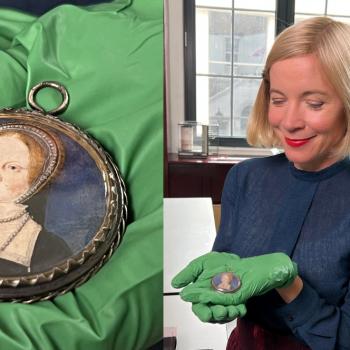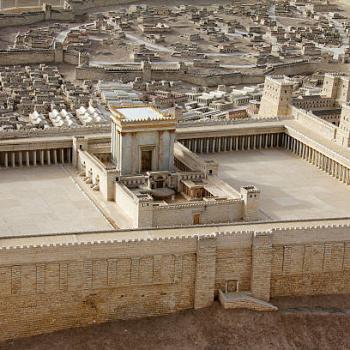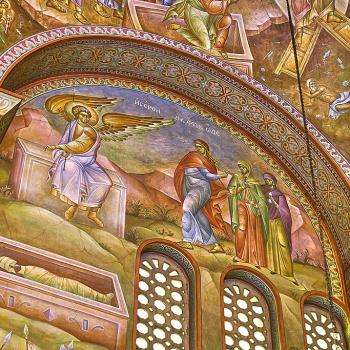Surrounded by the three-sided shelves designed by Gladstone himself, the breeze coming in from behind me through an open window, I go to work.
This is the central part of my experience, why I came. I have at least a chapter to write while I'm here, examples to choose, texts to explicate, theology to wrestle to the ground.
It is also the hardest part of my day to explain: I type. I think. I type. I read. I type some more.
Some days are more successful than others. As the great pitcher Satchel Paige said, "Sometimes, I sits and thinks. Sometimes I just sits."
But in any case: I write all day. Sometimes I get up to find a book. Sometimes, I go outside to read or make notes. Sometimes I check a fact on the Internet. More often than I should, I check my mail or Facebook. Jeanie says I get Facebook happy when I am this far away, and I know it's true—it's a link to her and everyone else I love.
Around one or two in the afternoon, I take a break. I leave the Library and walk down to the Post Office. I buy another drink, chat for a moment, walk back. Others are in the dining room having lunch or afternoon tea, and sometimes I indulge. Chef Alan is a marvelous cook, and I look forward to every dinner, every dessert, but the food is so good and so plentiful that I usually skip lunch. Breakfast and dinner are enough, and more than enough. I talk with Alan for a bit about food and family, about the TexMex meal he plans to cook for me next week, then I go back up to my desk.
At around five thirty, work begins to wind down. People begin to leave their desks, clomp carefully down the narrow stairs. Many of us gather in the Common Room around the newspapers. The Library subscribes to The Times, The Independent, The Guardian, The Telegraph. For me, coming from a town without a single good newspaper, this is an embarrassment of riches. I flip slowly through The Guardian, sip at the gin and tonic I made at the honor bar, and talk with some newly-arrived guests. They ask me about the area, how to get around, what they might want to see during their time here. I've spent almost four months at the Library in total; I guess I am something of an expert now.
Why do you keep coming back? someone asks me.
The easy answer—because I work so well here—is insufficient, so I don't offer it.
I come back because I love the place. Because of the people—the staff, the new friends who arrive from all over the world, the old friends who show up unexpectedly. I come back because I honor the legacy of Gladstone, who took faith, action, and intellect seriously, who elevated human rights to a political issue, who believed we all have a responsibility to serve.
I come back, in short, because I can't imagine not coming back.
Sometimes a place becomes so important to you that you can't imagine what your life would look like without it, so important that what you do there becomes less important than who you are there—and after you return.
Gladstone's Library has become such a place for me, and for many I meet here.
So there you have it: That is what I am doing here.





